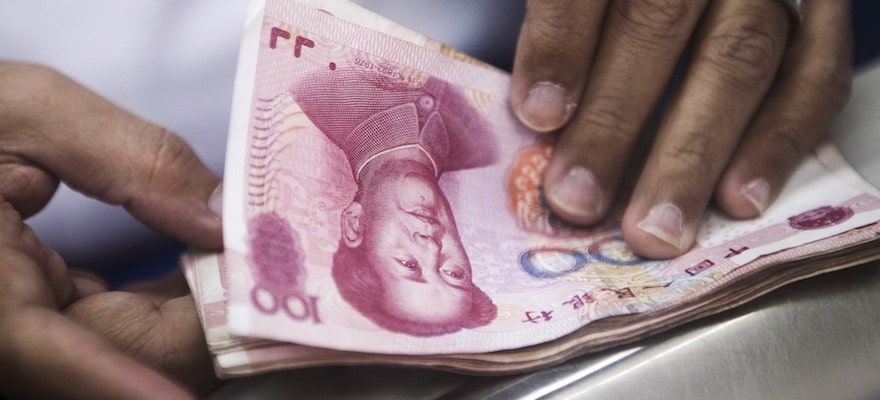China’s regulators are reportedly clamping down on banks from making net renminbi outflows, closing one of the remaining capital control loopholes, in a move that is perceived as a setback for the Chinese government’s broader strategy of internationalising its currency, according to a Financial Times report today.
To unlock the Asian market, register now to the iFX EXPO in Hong Kong
Clampdown
According to the report, banks in Shanghai must import Rmb100 for every Rmb100 they allow a client to remit overseas, ensuring no net outflows of the Chinese currency. They were previously allowed to remit Rmb160 overseas for every Rmb100 they brought back into China.
The clampdown will be further felt in Beijing where banks will be required to import Rmb100 for every Rmb80 they remit overseas on behalf of clients, ensuring a net inflow into the capital.
Chinese regulators became concerned about the renminbi’s rapid depreciation against the dollar, which they have attempted to slow down by selling down foreign Exchange reserves.
Capital Controls
To preserve China’s Forex stockpile which totalled just over $3 trillion at the end of last year, the central bank and State Administration for Foreign Exchange (SAFE) implemented a series of capital controls, as reported by Finance Magnates earlier this month.
Remitting renminbi offshore where it can be converted into foreign exchange is one method of avoiding new capital controls. It is a move which is also consistent with Beijing’s wishes to promote the renminbi as an international currency, by encouraging companies to use it for trade transactions, shareholder loan repayments and dividend remittances.
Net renminbi outflows from China exceeded Rmb265bn ($38.5 billion) in September but have since plummeted as Chinese regulators look to closing the loophole, according to policy researcher NSBO.
Overseas banks with a small domestic market share in China are said to have been more affected by the clampdown since they secure a higher percentage of revenues from cross-border business.


















